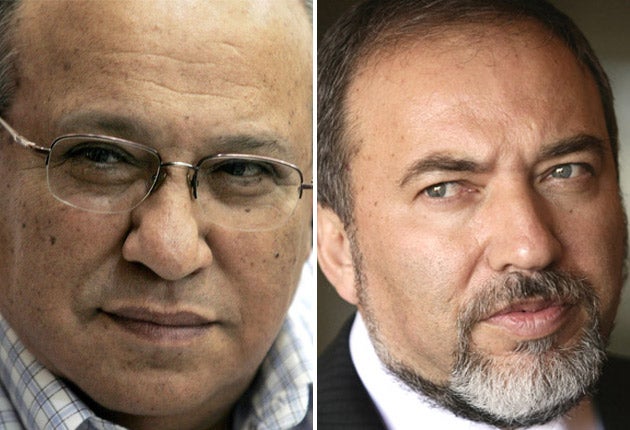Israel reels from backlash at killing of Hamas militant
Both the audacity and the competence of Mossad are being questioned after the latest episode in the agency's colourful history

After the excitement at a story worthy of Hollywood, the political fallout. Sharp questions are starting to be asked in Israel about an operation which left the physical appearance of the assassins exposed, appeared to have usurped the identities of, and perhaps even endangered, uninvolved Israeli citizens, and risked a serious diplomatic backlash because of the operatives' use of European passports to enter Dubai.
If the assassination, as seems probable despite the plea of "no evidence" by Israel's Foreign Minister Avigdor Lieberman yesterday, involved the country's overseas intelligence agency, Mossad, it will not of course be the first time it has hit trouble over its use of foreign passports. In 2005, two Israelis were convicted of fraudulently trying to obtain New Zealand passports. When the government in Auckland secured an apology from the Israeli authorities it regarded that in itself as proof that the two men were acting on behalf of the Jewish state.
Although there was no immediate UK confirmation yesterday, the Israeli press also reported that Israel was obliged to apologise when British passports the agency had been using were left in a phone booth in West Germany in 1987. Ten years later, Canada protested over the use of its passports in the famously botched attempt to assassinate the Hamas political bureau head Khaled Meshal in Amman – a failure which led at Jordan's insistence to the Gaza Hamas leader Ahmed Yassin being freed from jail.
The latest hit was not a repeat of the failed attempt on Mr Meshal. In Dubai, the assassins got their man, identified as a key figure in the smuggling of sophisticated weaponry from Iran and the murder of two Israeli soldiers in 1989. But the disclosure by Dubai police of the details of the operation has triggered two sets of potential ramifications.
The first is domestic – the use of the names of apparently unsuspecting Israeli citizens who are dual-passport holders, and who appeared last night to have little obvious redress from official circles. This may be the easiest for Israel, assuming it is responsible, to see off. Zahava Gal-On, the leftist former Knesset member, protested yesterday at the "idiotic" assumption of the identities of real people, but Tzahi Hanegbi, chairman of the powerful Knesset Foreign Affairs and Defence Committee, said he saw no reason for a parliamentary investigation. He argued it was not a problem for the government, and advised the people affected to hire a lawyer if they were worried.
In this the political establishment is helped by Israel's ambiguity towards Mossad, reminiscent of its approach to its nuclear arsenal. Like its nearest British equivalent, MI6, Mossad is "avowed"; its head, currently Meir Dagan, is known, and it has its own website. The sober tones with which Ha Mossad (literally "the institution") lists the activities it is mandated to carry out – including "planning and carrying out special operations beyond Israel's borders" – do little justice to the fearsome reputation it has built up since it was formed in 1949 by David Ben Gurion.
That reputation has been enhanced by Mossad's many well-known operational successes, including the smuggling of the Nazi war criminal Adolf Eichman to Israel for trial in 1960, the intelligence which led to the air strike on the Osirak nuclear reactor in Iraq in 1981, the spiriting of the nuclear whistleblower Mordechai Vanunu back from London in 1986, and the assassination of various Palestinian militants abroad. Neverthless, there are few opportunities for vigorous political debate on its activities; as Avigdor Lieberman, the foreign minister, said yesterday about the operation, "Israel never responds, never confirms and never denies."
That said, the diplomatic fall-out may be less easy to contain. Among sharply critical commentators, Ben Caspit of Maariv criticised the operation for failing to take account of its likely exposure. While Mr Caspit was largely attacking Mossad for being caught out, he concluded by remarking that "it is not certain that Mahmoud al-Mabhouh was worth all this". Amir Oren went further, calling for Mr Dagan's removal, and warning of an impending "diplomatic crisis" with "countries whose passports were used by the assassins". Assuming that the British investigation ordered by Gordon Brown is serious and finds Mossad responsible, and that other countries including the UK knew nothing of the Dubai operation, then Israel is unlikely to have heard the last of it.
Join our commenting forum
Join thought-provoking conversations, follow other Independent readers and see their replies
Comments
Bookmark popover
Removed from bookmarks